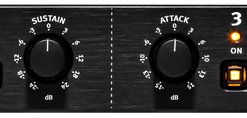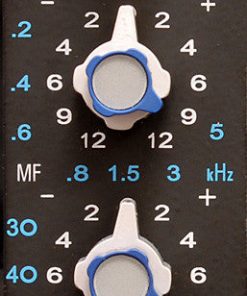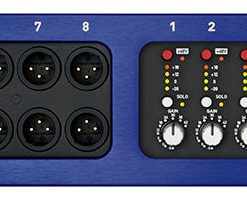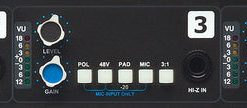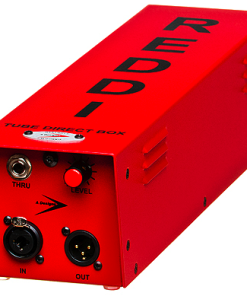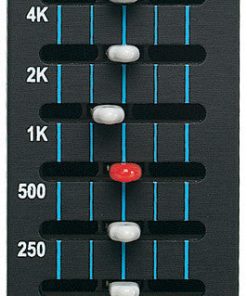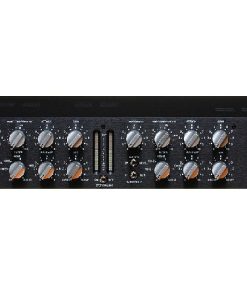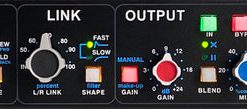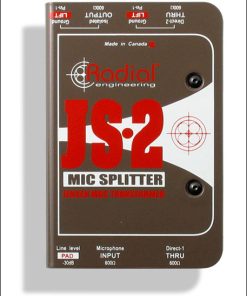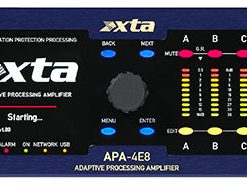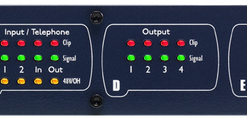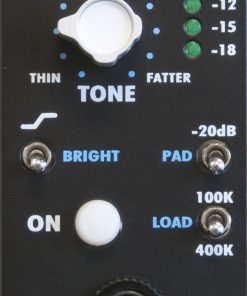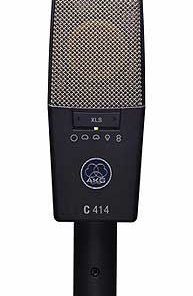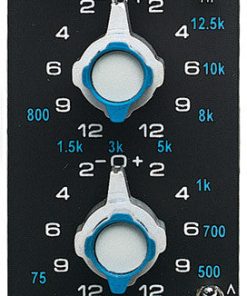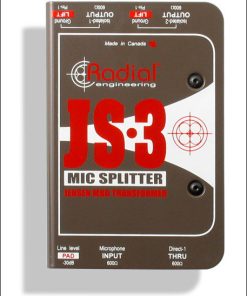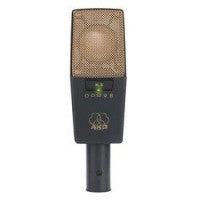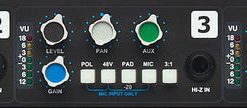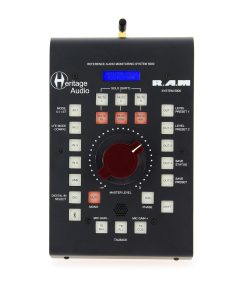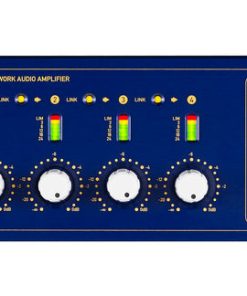SPL Transient Designer 4 Mk2 SPL
$ 1.199,00 $ 299,75
The original – redesigned.
In 1998, the SPL Transient Designer created a new breed of dynamic processors.
Level-independent processing of attack and sustain of audio signals has revolutionized
music production in a significant way.
The newest generation of the Transient Designer 4 features the same processing qualities as its predecessor, but comes in a new design and has an even better feel due to the solid aluminum knobs. The Transient Designer 4 Mk2 offers four Transient Designer channels in one 19″ device.
Transient Designing
SPL Transient Designer – the revolution in dynamics processing.
With the Transient Designer it is possible to manipulate the envelopes of audio signals level-independently (no threshold!). Accelerate or slow down transients, lengthen or shorten sustain times – with just two controls: attack and sustain.
All time constants are automated in a musical way and optimize themselves adaptively according to the characteristics of the input signal.
Attack
Attack can be used to increase or attenuate the transient phase of a signal by up to 15 dB. A positive attack value increases the amplitude of the transient response. Negative attack values lead to an attenuation.
Sustain
Sustain can be used to increase or attenuate the sustain phase of a signal by up to 24 dB. Positive sustain values extend the sustain. Negative Sustain values shorten the sustain.
On
The On switch activates the respective Transient Designer channel. This allows you to quickly switch between processed and unprocessed signal.
To minimize switching noises, switching is performed directly after the balanced inputs and outputs. This relay hard bypass circuitry also provides immediate redirection of inputs to outputs in the event of a power fault on the primary or secondary side of the power supply, or if the device is powered off.
Signal LED
The Sig LED (Sig) indicates whether an audio signal is
present at the input which has a level higher
than -20 dB.
Link
Channels 1 & 2 as well as 3 & 4 can be linked for processing stereo signals.
The respective left channel becomes the master.
The Differential Envelope Technologie
Differential Envelope Technology (DET) enables, through differential envelopes, level-independent processing of dynamic signal characteristics.
Only two controls are needed to control the transient response.
The envelope trackers align the working processes with the natural signal characteristics. This ensures optimum results for every moment.
Inputs and outputs
The four channels of the Transient Designer are equipped with Neutrik XLR sockets
with gold-plated contacts. The signal transmission is electronically balanced at
a nominal level of +6 dB.
Looks great, feels great – and lasts for a lifetime
The Transient Designer 4 Mk2 has a 4 mm thick, black anodized aluminum front panel
and aluminum knobs milled from solid. The housing is made of high-quality steel and is powder-coated in elegant black.
Prompt Delivery and Professional Packaging
Our long-standing partnership with UPS FedEx DHL and other global carriers lets us offer a range of shipping services. Our warehouse staff is extremely skilled and will package your items according to our precise and exact specifications. Your goods will undergo an extensive inspection and be safely packaged prior to being sent out. Each day, we ship to thousands of customers in many countries. The fact that we are committed to becoming the biggest online retailer in the World is clear. These warehouses are in Europe in the same way as they are in USA.
Note: Orders that include more than one item are assigned a processing period depending on the item.
Before shipping, we will inspect thoroughly the items you have ordered. Most orders are shipped within 48 hours. Expected delivery time is between 3-7 days.
Returns
Stock is dynamic. It's not entirely managed by us since we are involved with multiple entities, including the factory and the storage. The actual stock can change at any moment. It is possible that your order may be out of stock once the order has been placed.
Our policy lasts for 30 days. We cannot exchange or refund your order if it has been 30 days from the date of purchase.
For your item to be returned it must be in its original packaging, unopened and in the condition you received it. The item must be in its original packaging.
Related products
Recording Equipments
Recording Equipments
Recording Equipments
Recording Equipments
Recording Equipments
Recording Equipments
Accessories
Recording Equipments
Recording Equipments
Recording Equipments
Recording Equipments
Recording Equipments
Recording Equipments
API 2500+ – Discrete 2 Channel Stereo Bus Compressor wih Mix/Blend Control API Audio
Recording Equipments
Recording Equipments
Recording Equipments
Recording Equipments
Recording Equipments
Recording Equipments
Recording Equipments
Recording Equipments
Recording Equipments
Recording Equipments
Recording Equipments
Recording Equipments
Recording Equipments
Recording Equipments
Recording Equipments
Recording Equipments
Recording Equipments
Recording Equipments
Heritage Audio RAM System 5000 – 5000 5.1 Rackmount Monitoring System Heritage Audio
Recording Equipments



